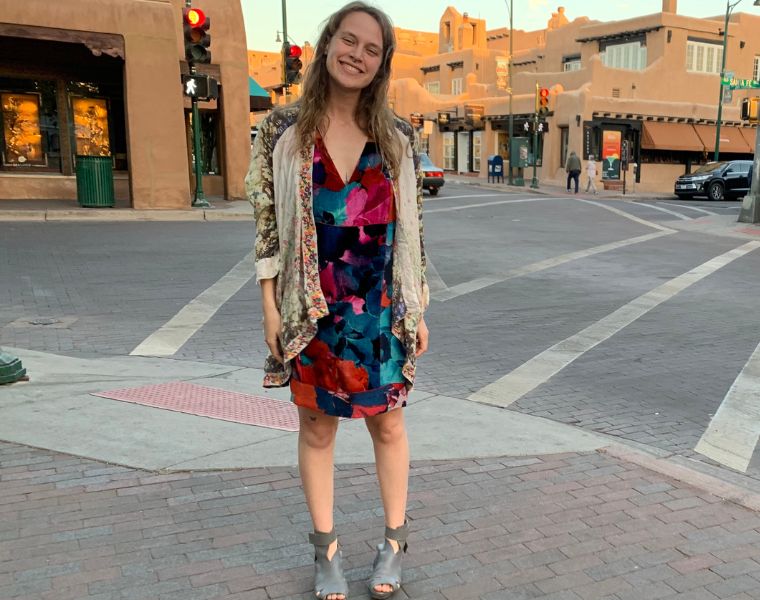As of mid-2022, the United Nations Refugee Agency estimated there are 103 million people who have been forcibly displaced worldwide, 32.5 million of whom are refugees and 4.2 million of whom are seeking asylum.
It’s a global crisis—and it’s one second-year law student Emily Worline aspires to tackle. While volunteering with refugees in Greece in 2016, Worline recognized a great need to support displaced populations as they resettle.
“I was shocked by how the international community rejects particular classes of people and I was motivated to join the community of people advocating for just paths to migration,” she said.
Inspired by her experiences, Worline founded Refugee Outreach Collective (ROC), a 501(c)3 nonprofit she created to support refugees while she was an undergraduate student at Kalamazoo College. The organization operates through two branches—one in the United States and the other in Malawi—to connect those experiencing displacement with educational opportunities and other resources.
Now, she hopes a law degree will help extend her impact. Initially drawn to Case Western Reserve due to the School of Law’s study abroad opportunities, Worline has focused her studies on immigration law.
We talked with Worline to learn more about ROC, the organization’s work helping refugees, and how her law education from Case Western Reserve is supporting her goals.
Answers have been lightly edited for clarity and length.
1. What does Refugee Outreach Collective do?
Refugee Outreach Collective (ROC) is a nonprofit that expands access to opportunities that individuals who have experienced displacement are often excluded from: conversations, the classroom and working legally. [We work] within universities to leverage resources and to organize a degree program, collegiate outreach program, and a tutoring program.
ROC’s collegiate outreach program includes nine student organizations in Ohio, Wisconsin and Michigan that support important long-standing programs, such as our work permit application initiative at Case Western Reserve’s law school, a tutoring program in Kalamazoo, and a medical relief fund in Grand Rapids. We’ve also partnered with Central Michigan University to waive the tuition of all the credits necessary for up to 20 students who ROC recruits in Dzaleka Refugee Camp, Malawi, to receive an associate’s degree.
2. What do you hope to accomplish through Refugee Outreach Collective?
Through my work with Refugee Outreach Collective (ROC) I hope to inspire more people to advocate for just paths to migration, and against the institutionalization of refugee camps around the world.
Additionally, I hope that my work expands access to spaces individuals who have experience with forced displacement have been excluded from (i.e. the ability to work legally, to migrate legally, and to continue onto higher education).
3. How has your education at CWRU supported your goal of helping refugees and your work with ROC?
My education at CWRU has supported my goals because I am learning about the law, and I have had new opportunities to connect with classmates and faculty who are interested in stepping up and helping out.
After graduation and passing the Bar (hopefully) I intend to practice immigration law; the legal knowledge I am receiving at Case [Western Reserve] is the only way I can pursue this goal. I have also connected with quite a few classmates who have a similar interest and goal in ensuring individuals have just paths to migrate. I hope to continue working with classmates to assist those resettling to the U.S. with their immigration paperwork, while learning more about the law in general.
4. Once you complete your law degree, what do you hope to do next?
After graduation, I plan on continuing to expand ROC’s legal efforts to support asylum seekers’ immigration cases in the U.S.
Want to support ROC’s mission? Consider participating in the CWRU chapter’s donation drive.

